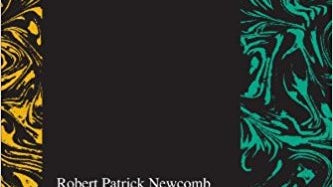Robert Patrick Newcomb, Nossa and Nuestra América: Inter-American Dialogues. West Lafayette, IN: Purdue University Press, 2012. 264 pp. Paperback and ebook. ISBN 978-1-55753-603-7
Robert Newcomb’s Nossa and Nuestra América: Inter-American Dialogues is a very important contribution to the study of the intellectual history of the Americas. The book focuses on late nineteenth and early twentieth century intellectuals who wrote essays that proposed or implied transnational and continental identities for Latin America, attempting geopolitical and cultural syntheses beyond national boundaries. There are individual chapters dedicated to specific writings by José Enrique Rodó, Joaquim Nabuco, Alfonso Reyes, and Sérgio Buarque de Holanda, but these contain important considerations about a number of other major authors such as José Bonifácio, Simón Bolívar, Eduardo Prado, José Martí, Manoel Bomfim, Ruben Darío, Octavio Paz, and Silviano Santiago. Newcomb displays a rare combination of thorough archival research, ample knowledge about the specific context in which all these authors worked, sharp reading skills, and a wide network of textual references. His book is notable as well because it expands the discussion about Latin America to sources beyond Spanish and Portuguese, discussing authors such as Leopold von Ranke, Friedrich Hegel, Jacob Burckhardt, Michel Chevalier, and Friedrich Meinecke.
“Latin America,” therefore, should not be viewed as a perfect
descriptor for the region it represents, but rather as a
historical and ideological creation with a particular intellectual
genealogy, a term which has as much capacity to
exclude as it does to include, an artificial designation
without ontological value, whose effective ‘reality’ exists to the
extent that it is popularly accepted as referring to,
and perhaps embodying, the essence or spirit of a specific
region. (p. 14)
Newcomb sees the Spanish and Portuguese Americas challenging each other to overcome their own blind spots and somehow accommodate diversity within Latin America. On the one hand, Brazil is a frequently glossed over obstacle to the facile adjustment between Hispanocentric nationalisms and Latinamericanism that frequently structure discourses about Latin America since Bolívar’s “Carta de Jamaica.” On the other hand, Spanish Latin America represents a serious challenge to Brazil’s theories of exceptionalism in the continent after the fall of the monarchy.
Writing in clear, purposeful prose, Robert Newcomb follows Jorge Schwartz’s call to the demolition of the wall of ignorance that isolates each Latin American nation in their own nationalism and effectively contributes to “entangle (or re-entangle) the Brazilian and Spanish American intellectual traditions” (p. 209). Although it should not be necessary to emphasize that the Americas constitute a multilingual space, many books written on the subject are painfully monolingual. In its contributions to a better understanding of Latin American intellectual history, Nossa and Nuestra América: Inter-American Dialogues joins the ranks of recent books such as Julio Ramos’s Divergent Modernities, Vickie Unruh’s Latin American Vanguards, and Fernando Rosenberg’s The Avant-Garde and Geopolitics in Latin America.
Reviewed by Paulo Moreira
Yale University
Paulo Moreira has published scholarly articles and reviews on poetry, the short story, Lima Barreto, Machado de Assis, Afro-Brazilian literature, Contemporary Brazilian Film, Faulkner, Guimarães Rosa, and Rulfo. He has also published a poetry volume (Quatro Partes) and his poems have appeared in renowned Brazilian literary magazines (Inimigo Rumor, Coyote, Mallarmargens). His book, Modernismo Localista das Americas: Os contos de Faulkner, Guimarães Rosa e Rulfo, was published in January 2013 and his second book Literary Relations Between Mexico and Brazil – Deep Undercurrents was published with Palgrave Macmillan in December 2013.




